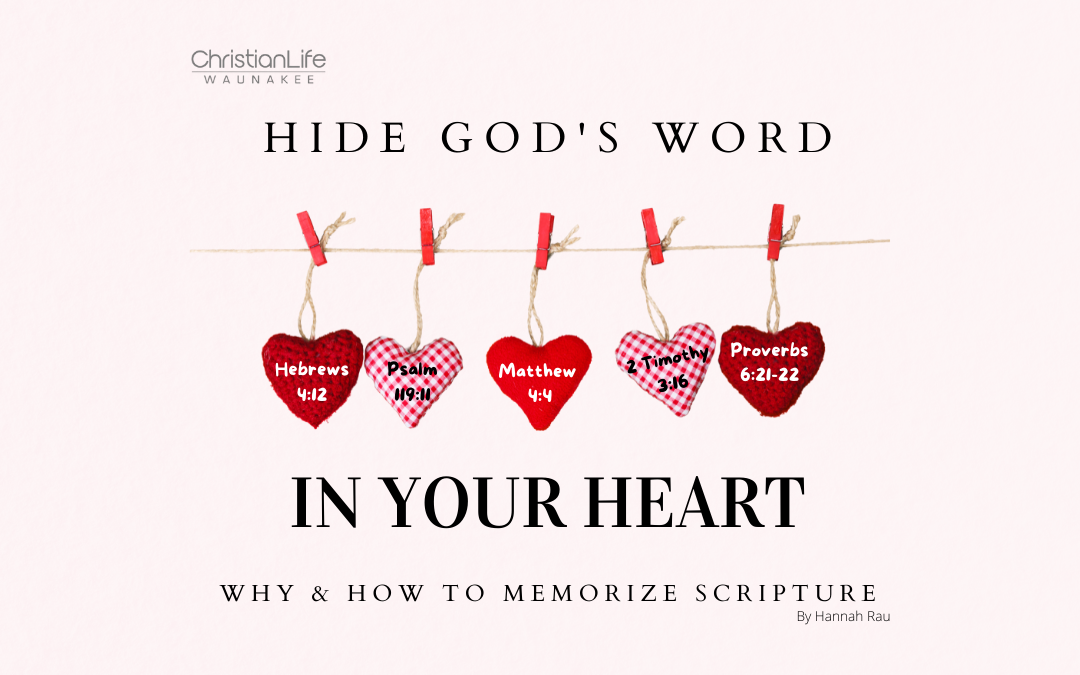Memorizing Scripture isn’t just something kids do in Sunday school. We may feel like memorization isn’t necessary because we typically have access to the Bible whenever we want it. However, memorization is one way to help us meditate on God’s Word and take it with us throughout everyday life.
Everyday in the world we make decisions, learn new information, and encounter new ideas. Being well-acquainted and knowledgeable about the Scriptures equips us to respond to these situations in a God-pleasing way. We will also be better equipped to answer the questions of others if they arise.
Psalm 119:9-11 says,
“How can a young person stay on the path of purity?
By living according to your word.
I seek you with all my heart;
do not let me stray from your commands.
I have hidden your word in my heart
that I might not sin against you.”
Hiding God’s Word in our hearts by memorizing it can help us obey Him. It is just one way to know and love Him better.
Memorizing Scripture doesn’t have to be intimidating. Start small with just a few manageable passages. Below are a few strategies to get started. You may notice that some of these are similar to the strategies for meditating on God’s Word in last month’s post. That’s because memorization is aided by spending more time with something and using multiple senses or modes to interact and engage with it. So, you may find that meditation and memorization go hand-in-hand.
Make it visible.
The more often we encounter something, the more likely we are to remember it. Print or write out a copy of the verse in a visible place. Reread it and recite it to yourself each time you see it until you know it by heart.
Write it out.
Writing something multiple times makes it easy to remember, but it needn’t be a punishing chore like writing on a chalkboard 100 times. Try keeping a commonplace book for passages you are memorizing. Add decorations or other notes to make it fun.
Read it aloud.
Hearing the passage instead of just reading it silently can offer another way to remember the words. Reading a passage, writing it, and then reading it aloud is a combined process that allows you to interact with a passage multiple times in several ways.
Sing it.
Songs are often much easier to memorize than spoken or written words. Try creating a melody, mnemonic, or other memory aid that can help you recall the verses you’ve memorized more quickly.
Quiz yourself.
Make flash cards. Recite and rehearse verses to yourself or to someone else. Getting someone else to practice with you is a great way to memorize because you can encourage each other.
Use an app.
Finally, there are plenty of Bible- or quiz-based apps and websites out there offering tools to easily quiz yourself in different ways. You may also be able to track your progress this way. Pick a method that appeals to you and motivates you and get memorizing
—————————————————

